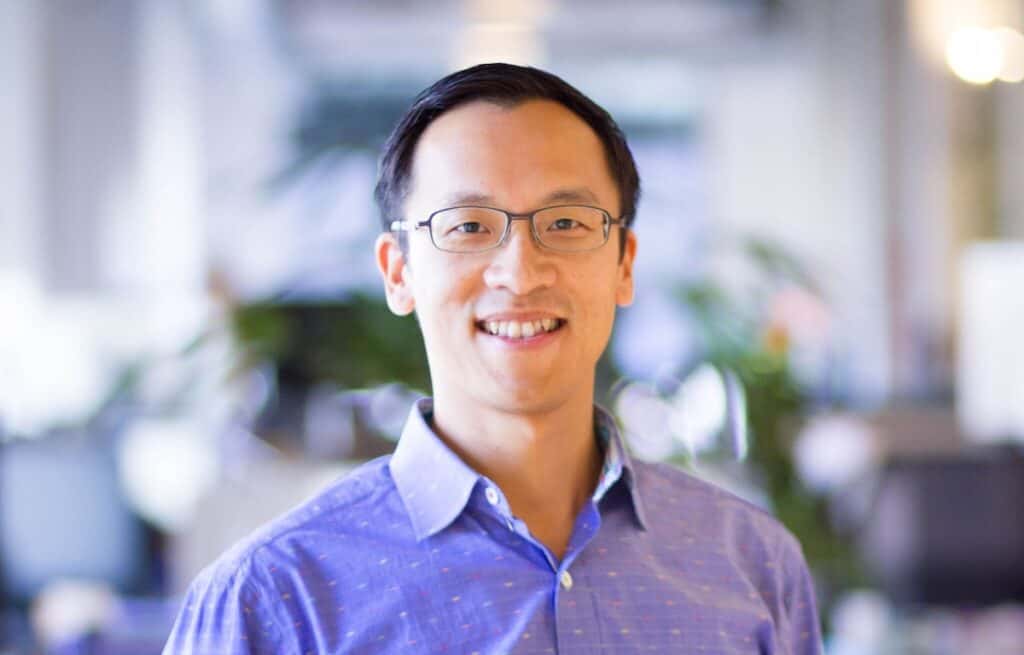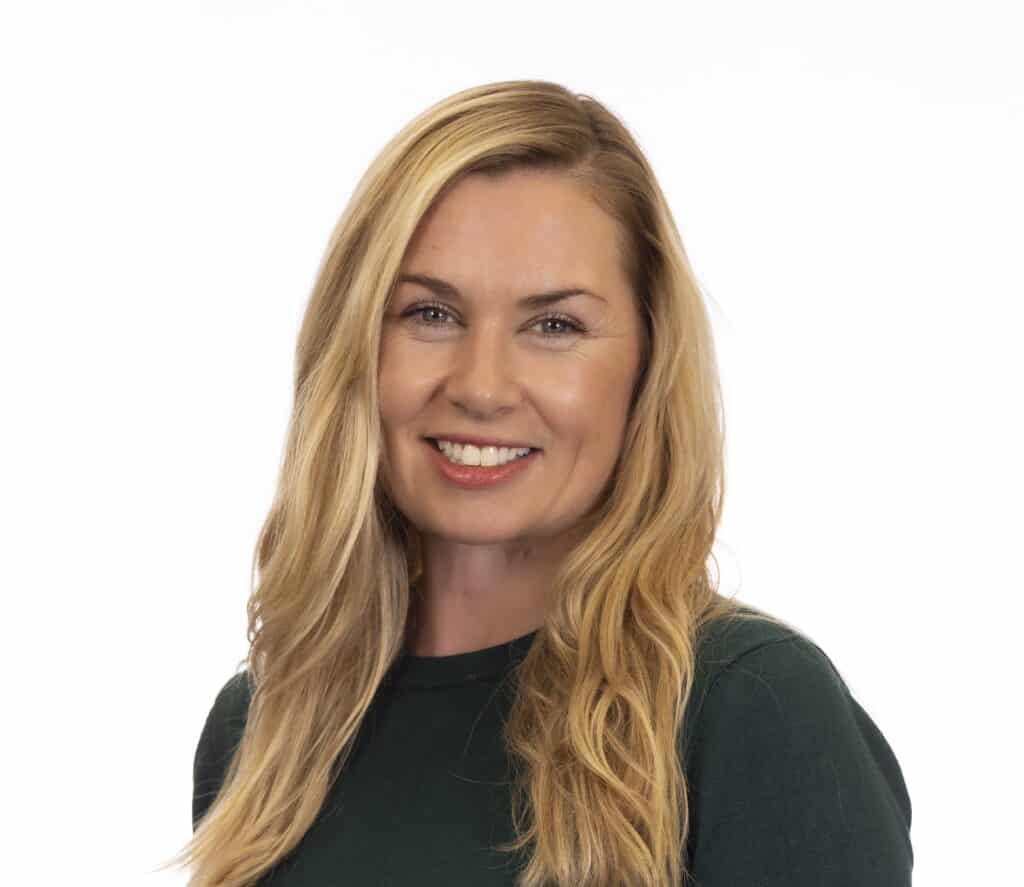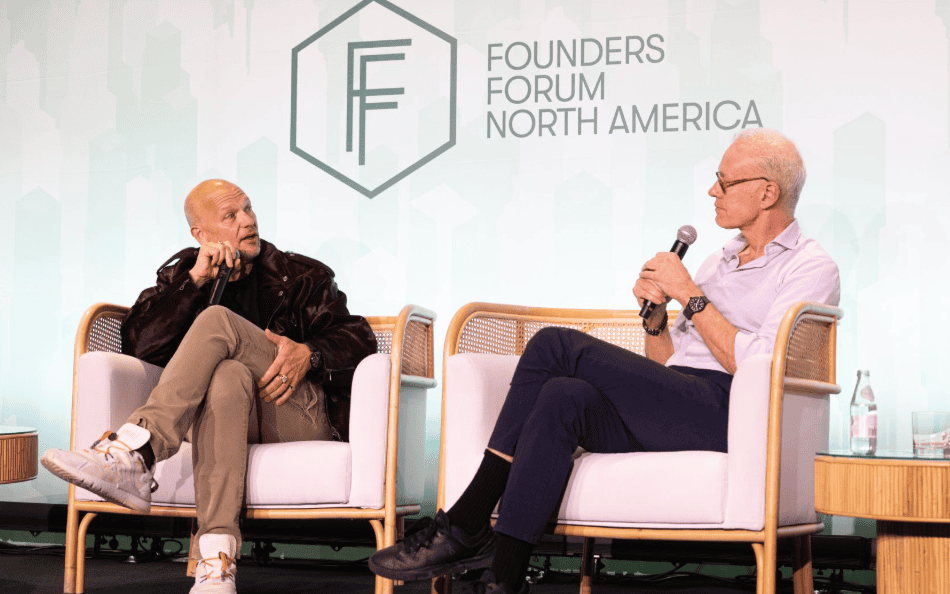Last updated on February 18, 2025
From breakthrough AI solutions to new leadership models, discover the technology trends to watch revealed by tech leaders at FF MEASA 2025.
Home to more than half the world’s population, the MEASA region (Middle East, Africa, and South Asia) boasts a combined GDP of $7.7t – and Dubai is at its centre, with a business environment which ranks top globally for entrepreneurship, talent, and investment.
At FF MEASA, co-hosted with Dubai Department of Economy and Tourism (DET), we gathered 200+ leading tech founders, investors, CEOs, and policymakers to explore how technology is reshaping the region’s future, with discussions covering fusion reactors, AI drug discovery, fintech innovations, and more!
Sachin Dev Duggal (Builder.AI), Panos Madamopoulos-Moraris (Stanford Institute for AI), Daniel Khachab (Choco), and Dr Marwan Alzarouni (DET) revealed how breakthrough AI is reshaping global industries, while Fahmi Al Shawwa (Immensa), Nadine Karadag (Valeo), and Noor Sweid (Global Ventures) discussed the MEASA region’s growth potential.
Talabat’s Tomaso Rodriguez and Moove’s Ladi Delano talked about innovating across high-growth emerging markets and Francesco Sciortino (Proxima Fusion) and Benjamin Swerner (Relation) discussed disruptive innovations in AI and deeptech, before Dan Vahdat (Huma), Michael Acton Smith (Calm), and Ali Parsa (Quadrivia AI) discussed AI in healthcare.
Carl Pei (Nothing), Priyanka Gill (Coluxe), and Oliver Merkel (Flink) discussed the next generation of interconnected consumers, while Michele Ferrario (StashAway) and Ambar Sur (Terrapay) explored the future of fintech in the region.
Here are the MEASA technology trends to watch:
1. Dubai is Driving Innovation in the MEASA Region
The Dubai tech sector reached a combined market valuation of $43b in 2024. In our report, Dubai Tech: The Road to 2033, we reveal how regulatory sandboxes, a business-friendly tax system, and a growing investment ecosystem are turning Dubai into a world-leading testing ground for future technologies.
Dubai startups have raised $7.3b in VC funding over the past five years and the city has seen an explosion in VC presence, growing from just 10 firms pre-pandemic to 150 today.
Combined with easy access to fast-growing markets across MEASA, top tech companies are increasingly using Dubai as a launchpad for global expansion. talabat, the Emirati subsidiary of German multinational tech company, Delivery Hero, went public with a $2b IPO on the Dubai stock exchange in December 2024 – another sign of Dubai’s growing maturity as a global tech hub.
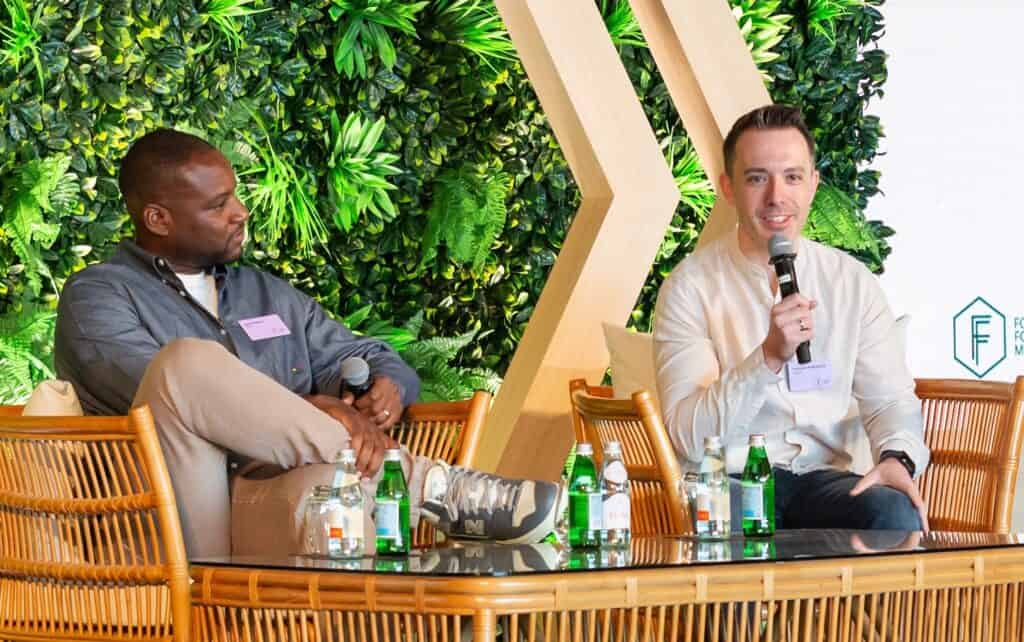
2. MEASA Entrepreneurs are Building Game-Changing AI Companies
Sachin Dev Duggal’s Builder.ai is using AI to democratise software development, making it accessible to the 90% of the world that lacks technical expertise. Fahmi Al-Shawwa’s Immensa leverages AI to digitise the global spare parts supply chain and uses additive manufacturing to solve real problems. In the UAE in particular, pro-innovation AI regulation is proving a breeding ground for AI startups.
The UAE was the first in the world to appoint a Minister of AI and the UAE National Strategy for AI aims to position the country as a world leader in AI by 2031. The UAE’s AI market was valued at $3.47b in 2023 and is projected to grow at a CAGR of 43.9% through to 2030. Meanwhile, the Dubai government’s Universal Blueprint for Artificial Intelligence aims to accelerate the adoption of AI, appointing 22 chief AI officers for key government departments and launching a major AI startup incubator.
3. MEASA’s Next Generation are Redefining Consumer Tech
Home to four billion people with a median age of less than 24, the MEASA region represents a massive market opportunity with its young, digitally-native population. For an increasingly connected, mobile-first consumer base, businesses increasingly require a nuanced understanding of local consumer needs.
Carl Pei’s Nothing moved its manufacturing to India to focus on the local market. Nothing is now the fastest-growing smartphone brand in India, achieving 577% YoY growth. Nothing also launched an affordable sub-brand, CMF by Nothing, to produce accessible-priced devices, including a new smartwatch and earbuds.
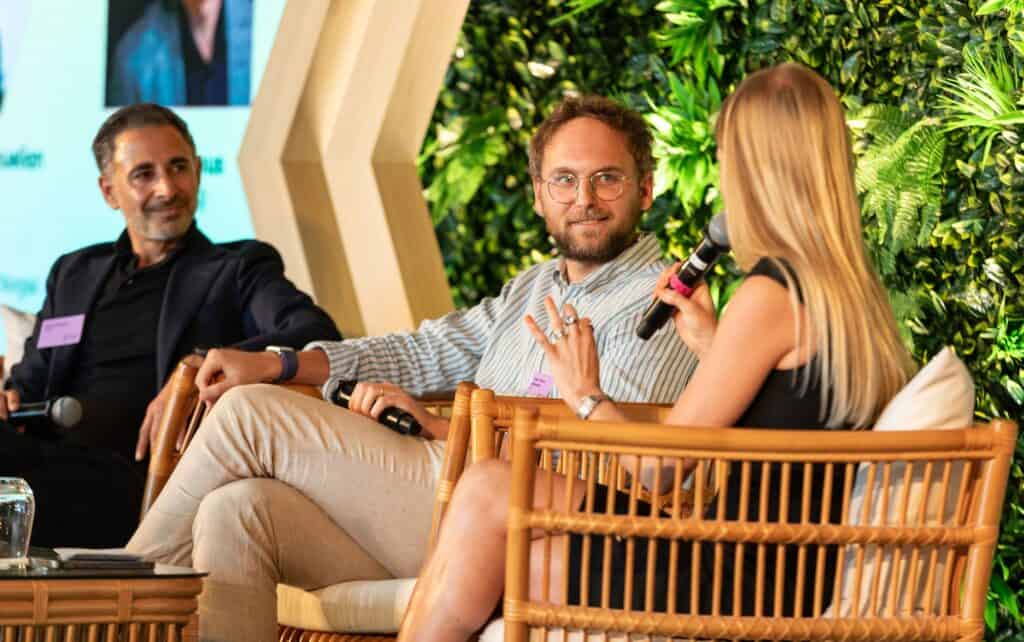
4. MEASA’s Growing Talent Pool is Facing New Working Models
With a young and increasingly tech-savvy population, MEASA offers a huge, high-potential talent pool for tech companies – and Dubai’s friendly visa policies offer significant opportunities for global talent in the region.
This talent pool will experience radically different ways of working compared with previous generations. Take Tony Jamous’ Oyster HR, which built a distributed team of more than 500 people spread across 70 countries with gender equality at every level of the organisation; or Jean Charles Samuelian-Werve’s Alan, which takes a super-transparent, human-centric approach, making salary and equity information, plus board packs and decision-making processes, accessible to all employees.
5. Advanced Technologies Are Finding Testing Grounds in MEASA
By 2030, every $1 invested in digital technology in Sub-Saharan Africa will return over $2 for the region’s wider economy. Technology can have a mammoth impact across the MEASA region and, backed by government initiatives and a flexible regulatory regime, Dubai has emerged as a major hub for developing future technologies.
Disruptive tech companies exploring opportunities in the region include Francesco Sciortino’s Proxima Fusion, which is leveraging new superconducting magnets to transform fusion energy innovation and aims to implement the first gigawatt-scale power plant in the 2030s.
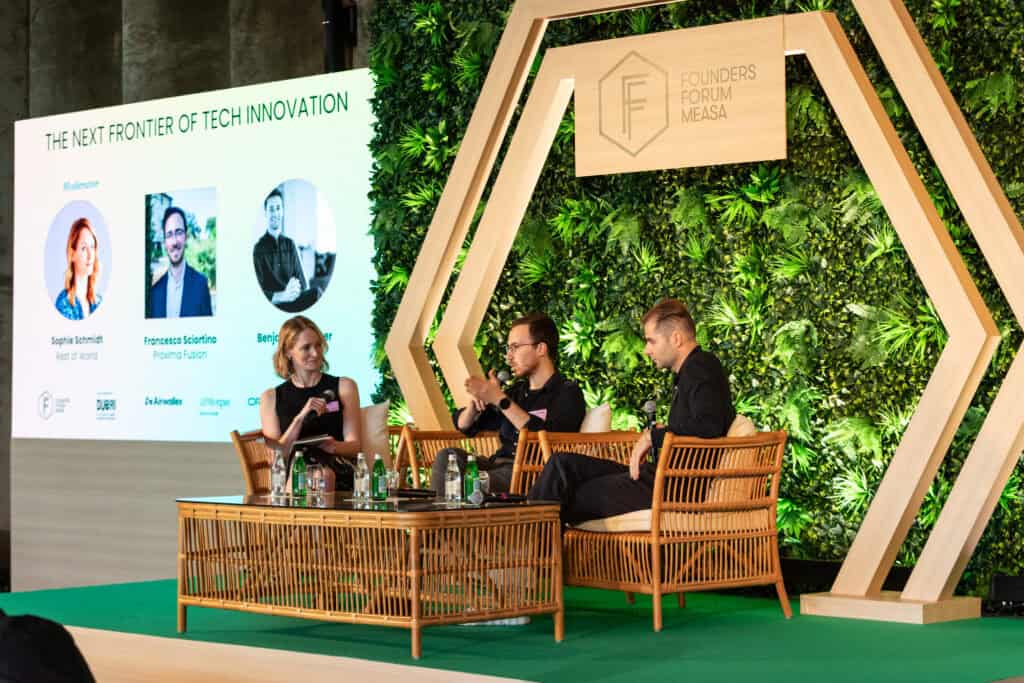
6. Fintech Startups Are Pushing For Greater Financial Inclusion Across MEASA
With a significant portion of the population of MEASA without access to financial products, fintech founders are exploring opportunities in the region. Michele Ferrario’s StashAway is democratising access to sophisticated investment products in MEASA, targeting the 90%+ people without access to stock markets in Southeast Asia and the MIddle East. Ambar Sur’s Terrapay powers global payments across 7.5 billion bank accounts, 6 billion cards, and 3.7 billion digital wallets, and is helping businesses tap into global and emerging markets in Africa and Southeast Asia.
Meanwhile, with its 2024 Open Finance Regulation and drive towards greater financial inclusion, open banking, and alternative asset classes, the UAE is driving fintech innovation across MEASA. Dubai International Financial Centre’s Innovation Hub is home to Fintech Hive, the first and largest fintech accelerator in MEASA, connecting startups with the region’s largest financial services firms, banks, and insurance companies. Dubai’s Virtual Assets Regulatory Authority (VARA) is the world’s first independent regulator of virtual assets, like cryptocurrencies and NFTs, and has awarded full regulatory approvals to global crypto exchanges such as OKX, Crypto.com, and Binance in the past year.
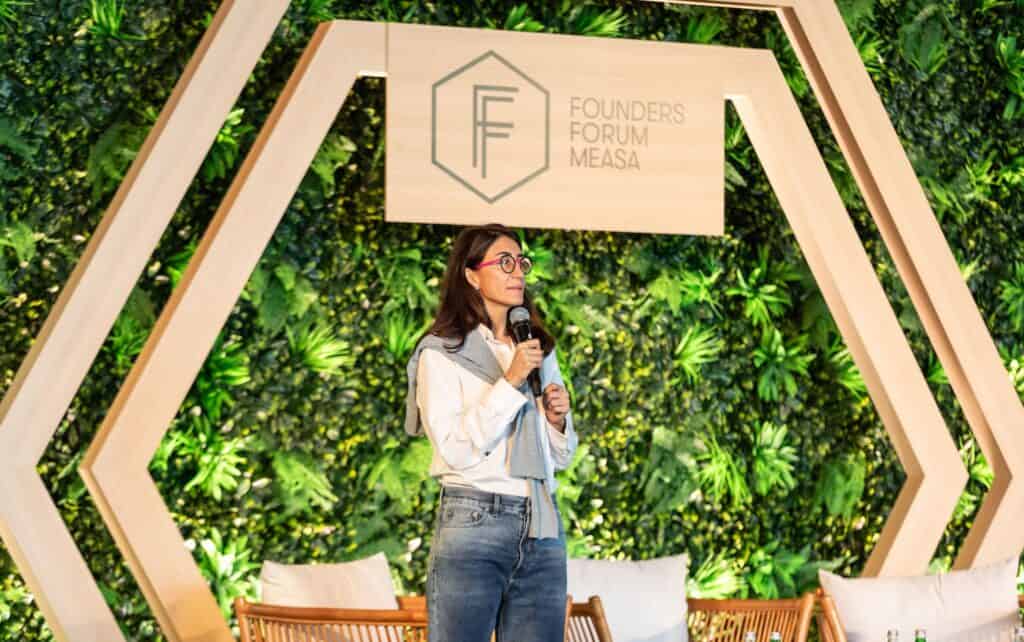
7. Our FF MEASA Rising Stars are Disrupting Ecommerce & Connecting Cultures with AI
Our Rising Stars brought the FF magic to Dubai, pitching startup ideas with world-changing potential in and around the MEASA region. Dubai-based qeen.ai, co-founded by Morteza Ibrahimi, is helping businesses maximise their sales and marketing by developing AI agents for ecommerce tasks.
Nour al Hassan’s Tarjama has become MENA’s leading language technology company, specialising in Arabic language AI and translation solutions. Sam Chapatte’s Kapu is on a mission to lower the cost of living for consumers in Africa by building an ecommerce model for the urban mass market.
That’s a wrap from FF MEASA until next year. Huge thanks to our partners Airwallex, J.P. Morgan Private Bank, Oracle, and Wheely.
Download Dubai Tech: The Road to 2033 for a comprehensive overview of the Dubai tech ecosystem and our 33 Dubai tech startups to watch!
 All Posts
All Posts
